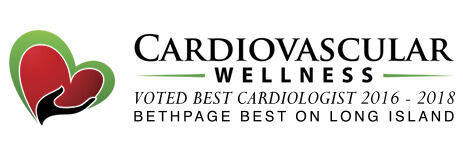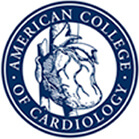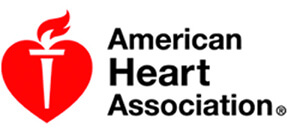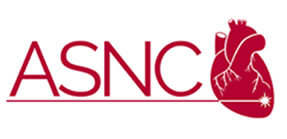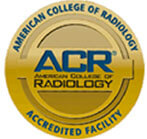What Are the Four Stages of Congestive Heart Failure?
- Posted on: Jun 4 2024
If you or your loved one have been diagnosed with systolic congestive heart failure, you may be feeling a significant amount of stress about the future. Taking a deep breath and understanding that you have treatment options to help your heart can help you as you move forward.
Being diagnosed with congestive heart failure doesn’t necessarily mean that your heart will stop working entirely in a short time and that there’s nothing you can do about it. It’s easy to feel powerless if you’ve received this type of diagnosis, but it’s more important than ever that you understand congestive heart failure and advocate for yourself and what your body needs.
What Is Congestive Heart Failure?
Congestive heart failure means that your heart isn’t pumping all of the nutrients and oxygen your body needs because the pressure in your heart has increased. Your body depends on your heart to pump nutrient-rich blood and oxygen to your body’s cells. The cells are dependent on proper nourishment to function.
When congestive heart failure occurs, your heart becomes weaker and has difficulty pumping with enough force to deliver all the essential nutrients the cells in the rest of your body need. Congestive heart failure is indeed a severe medical condition. Still, if you receive effective medical treatment and make the necessary lifestyle changes, you can manage this condition and work toward leading a satisfying and whole life.
1. Stage A
Stage A congestive heart failure is the first stage in the progression of the disease. Performing physical activity may not be an issue for those with Stage A heart failure. Many people who are in the first stage may not even know they have congestive heart failure because their symptoms may not be obvious. Patients in this stage are considered at high risk of developing the disease in the future. A diagnosis of Stage A congestive heart failure could result from one or more of the following symptoms;
- Diabetes
- Family history
- Coronary artery disease
- Heart attack
- Hypertension
- High blood pressure
- Obesity
Patients with Stage A heart failure haven’t yet experienced dysfunction of the pumping activity of the heart, but they are at risk of developing heart failure because of related conditions. Without making lifestyle changes, patients with Stage A congestive heart failure are at a high risk of their condition progressing to more serious stages. Patients don’t have a problem with the structure of their heart or how it pumps blood yet and may be able to keep their condition in Stage A by managing risk factors.
2. Stage B
Structural changes to the heart become apparent during Stage B congestive heart failure. Patients who are in Stage B heart failure have usually already been diagnosed via an echocardiogram. The echocardiogram will usually show a type of structural heart disease like systolic left ventricular dysfunction or an enlarged left ventricle. A prior heart attack can also cause Stage B heart failure.
Structural heart disease corresponds significantly with the development of heart failure. Many patients do not experience symptoms of heart failure at this stage. However, receiving a diagnosis during this stage can be incredibly helpful. When patients undergo diagnostic testing and learn they have congestive heart failure, they can work with their provider to make changes to manage their condition. A cardiologist may prescribe prescription medication during this stage to manage the condition and prevent future problems. Specifically, a cardiologist may prescribe ACE inhibitors/ARB or ARNI and beta blockers.
3. Stage C
Generally, it’s during Stage C that patients begin experiencing symptoms of congestive heart failure that may significantly impede their day-to-day activities. Symptoms are usually caused by difficulties squeezing the heart’s left ventricle, which pumps blood. Patients who have spent time in the hospital because of their heart failure symptoms becoming more pronounced may be diagnosed with Stage C heart failure while they are there.
Doctors frequently prescribe medication to manage symptoms and prevent future problems during this stage. Doctors may also suggest an implantable cardioverter defibrillator and cardiac resynchronization therapy. Some of the most common symptoms of Stage C heart failure include, but are not limited to, the following:
- Nausea
- Coughing and wheezing
- Inability to exercise
- Fatigue
- Rapid or irregular heartbeat
- Shortness of breath
- Trouble concentrating
- Weight gain
- Swollen feet, ankles, or legs
- Increased urination at night
4. Stage D
Patients have entered Stage D heart failure when their symptoms become more advanced, making it difficult for them to work or engage in their usual day-to-day activities. Patients may need to be on oxygen to support their heart. They may become unresponsive to treatments. At this stage, engaging in mild activity, even when they are at rest, can cause extreme cases of the congestive heart failure symptoms mentioned above.
Stage D heart failure patients may benefit from advanced and specialized medical treatment. Continuous inotropic infusions can make the heart squeeze harder, and mechanical circulatory support may become necessary. In some cases, cardiologists may recommend a cardiac transplant. The patient may benefit from receiving hospice care at this stage.
What Are the Treatment Options for Congestive Heart Failure?
The treatment options for congestive heart failure depend on each patient’s unique medical history and symptoms and the stage of heart failure they’re in. Lifestyle changes such as maintaining a healthy body weight, regular exercise, stress management, and eating a healthy diet can be beneficial. Regularly monitoring blood pressure and treating and managing risk factors such as diabetes, hypertension, drugs, alcohol, and smoking can also help. A cardiologist may prescribe medication to help you manage your condition.
Contact Our Cardiologist in Long Island
If you’re in the Long Island area, Dr. Ameeta Walia can help you screen for heart conditions, including congestive heart failure. Whether you’d like to have an overall heart health screening or have been diagnosed and would like to work with a cardiologist to manage your condition, don’t hesitate to visit Cardiovascular Wellness in Long Island.
Posted in: Heart Health
